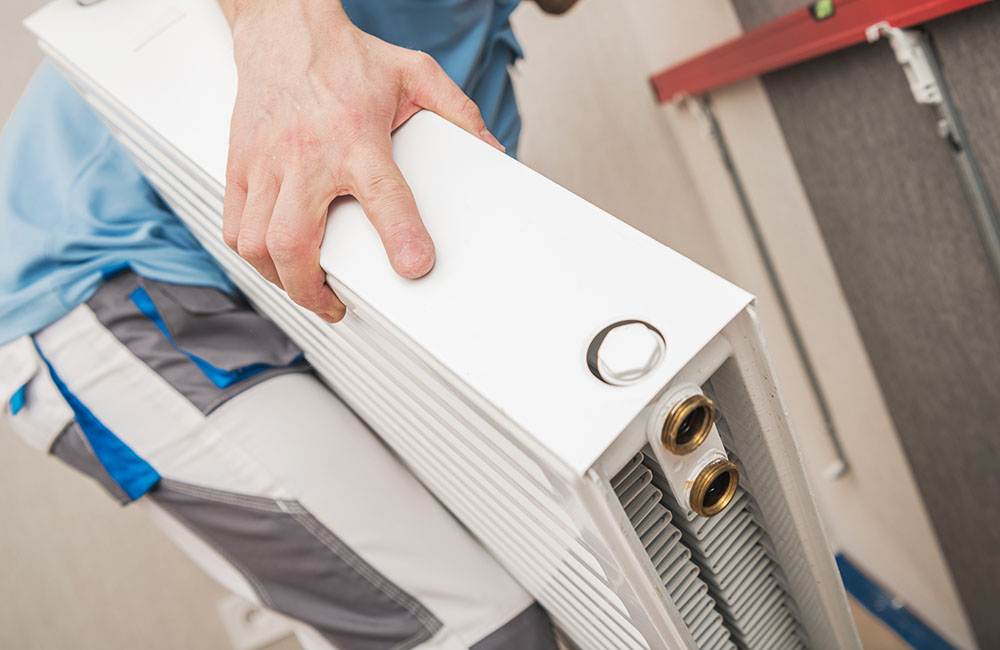

Replacing an outdated heating system can be daunting, especially when considering the various technologies available in the market. However, the right HVAC company can help guide you through the process and provide information on the different models and sizes to fit your home’s needs. With the assistance of a professional, you can explore the latest options and find the perfect replacement system to keep your home warm and comfortable.
Forced Air Distribution System with a Furnace
A furnace, typically fueled by natural gas, circulates heated air throughout the home using a forced air distribution system comprised of ducts. Other fuel options such as electricity, propane, or oil may also be utilized, but natural gas is the most commonly used in U.S. homes. The advantage of a furnace is that it can also be utilized in conjunction with an air conditioner during the summer months.
Radiator Distribution System with a Boiler
Another popular central heating system is a boiler that operates by sending hot water or steam through pipes. While it allows for zoned heating and cooling, it is more expensive in installation and operation than in furnaces. Both furnaces and boilers are referred to as central heating systems because the heat is generated at a central location in the home and distributed throughout.
Hybrid Heating Solutions
Hybrid heating systems offer the benefits of both heat pumps and gas furnaces. In most cases, the heat pump operates to provide heating and cooling, with the furnace only kicking in during extremely cold temperatures. This dual system approach reduces strain on each unit, leading to less frequent repairs and replacements and ultimately maximizing system efficiency.
Heat Pump Systems
Heat pumps offer a versatile solution for heating and cooling your home. These systems utilize refrigerant and electricity to transfer heat instead of generating it like a gas furnace. This makes heat pumps highly efficient compared to other heating options. However, they tend to perform optimally in temperate climates with moderate temperatures.
Radiant Heating System
The radiant heating system circulates hot water or electrical heat through tubes installed in the floor, ceiling, or walls. Various sources can fuel this system, including oil, gas, propane, or electricity. The lifespan of radiant heating largely depends on the heat source system used. Although radiant heating systems can have a long lifespan, repairs can be costly in case of any issues.
Ductless Mini-Splits System
The ductless mini-split system offers the convenience of zone control and eliminates the need for extensive ductwork. This system is ideal for large homes and additional spaces without existing ducts.
Baseboard Heater System
Depending on your heating requirements, you may use either electric or hydronic baseboard heaters. A baseboard heater is normally considered a secondary heating system or heating addition. If you have questions about baseboard heaters, speak to your HVAC technician.
Maximize the Lifespan of Your HVAC System
With care, our vehicles can often go beyond mileage promises. The same is accurate for your HVAC system. With annual maintenance and careful attention to warning signs, you’ll get the most out of your furnace for years to come.
Contact us to receive your quote and book your HVAC services today.
